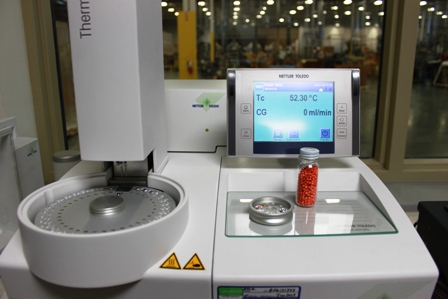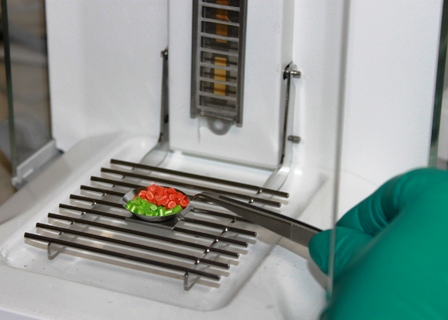
Testing

- Differential Scanning Calorimetry (DSC)
- Determines the thermal characteristics of your polymer such as the melting point and percent crystallinity
- Oxidation resistance analysis
- Kinetic modeling available
- Thermogravimetric Analysis (TGA)
- Compositional analysis for volatiles, base polymer, carbon loading, inorganics
- Simultaneous DSC analysis available
- Kinetic modeling available
- Fourier Transform Infrared Spectroscopy (FT-IR)
- Material identification
- Software capabilities for multiple component matches
- Melt Flow Rate (MFR)
- Determines the flow rate of a polymer under different temperatures and load
- Microscopy
- Microscopic imaging available up to 200X
- Measurements (X, Y and Z planes) down to 0.005 mm or 0.0002 inches
- Moisture
- Determines the moisture in a material by relative humidity
- Loss on Drying
- Determines the weight loss associated with volatiles and moisture by exposure to elevated temperatures
- Viscosity
- Determines the viscosity of liquids by a rotational viscometer
- Density
- Determines the density of solid material
- Bulk Density
- Determines the volume of space occupied by a material
- Durometer Hardness
- Determine the hardness of a material in Shore A and D scale
- Particle Size
- Sieve testing with a 10 to 270 mesh range (2.00mm to 53µm)
- Impact
- Tensile/Compression
- Tensile and compression testing available with up to 1500 lbs. of force
- Pipe Burst
- Resistance to short-time hydraulic pressure (quick burst)
- High-Performance Liquid Chromatography (HPLC)
- Technique to identify and quantify components within a mixture
- Custom Testing Protocols
- Combinations of test capabilities or other tests not listed can generate invaluable information for your specific needs
- Examples of this include the identification of contaminants, the presence of DEHP in PVC, material degradation, percent VOC’s, and many more
BACK TO ANALYSIS PAGE
